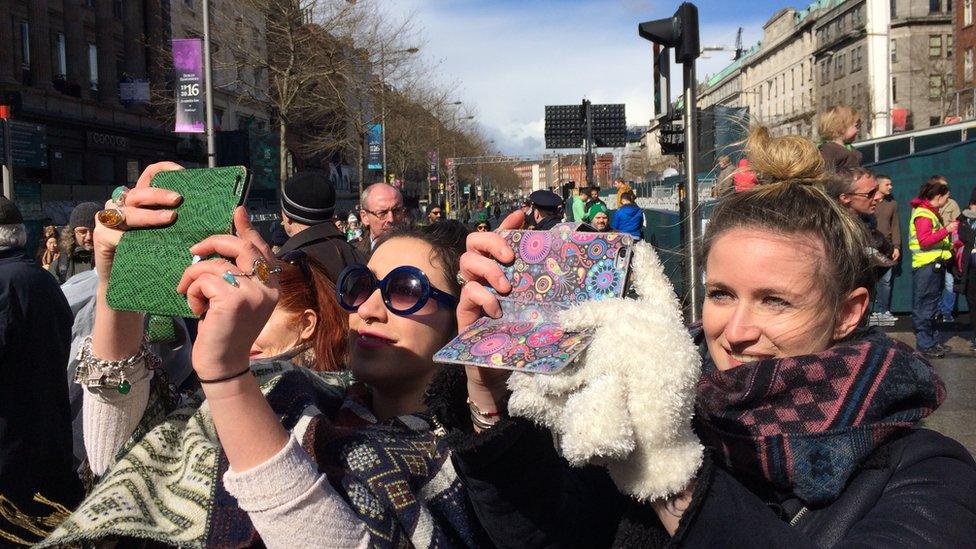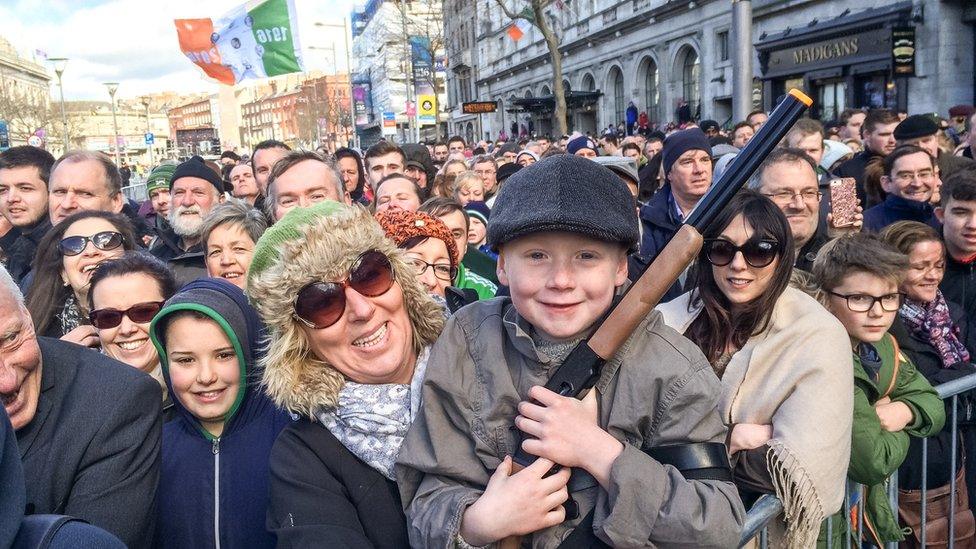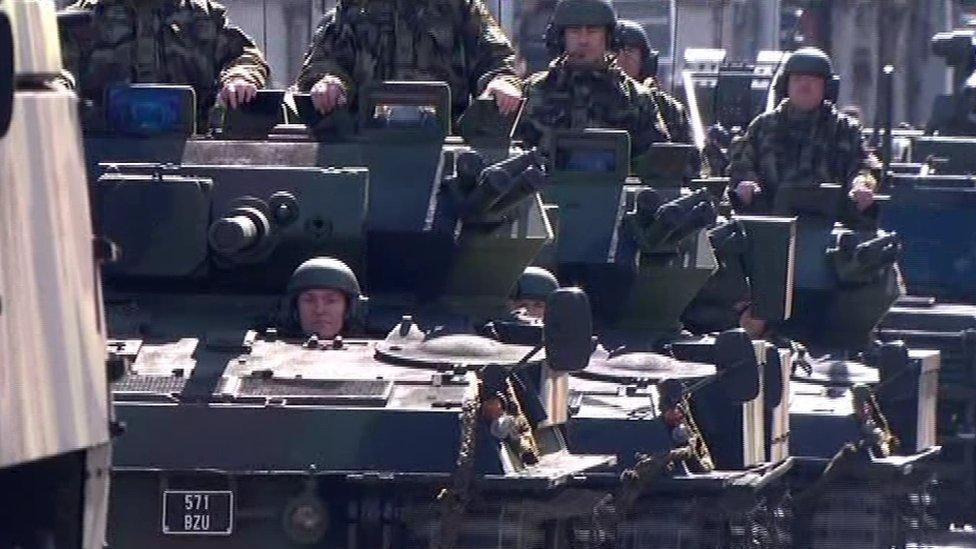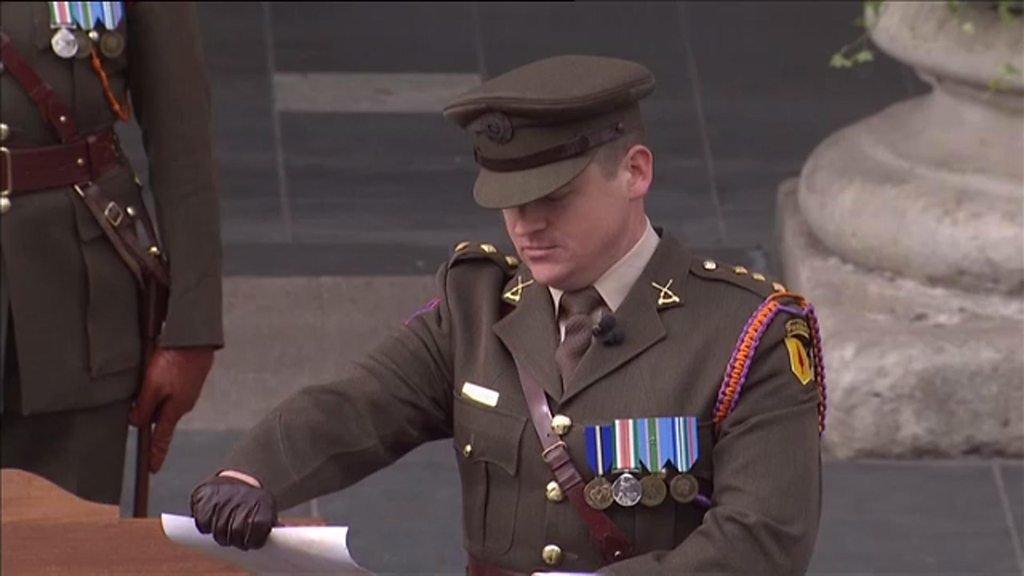Easter Rising 1916: Dublin crowds pause for moment in history
- Published
The 1916 Proclamation of Irish Independence is read outside the GPO in O'Connell Street.
It is a rare moment in a large crowd when everyone puts down their smart phone and just listens.
That rarity occurred when Captain Peter Kelleher, a soldier from Cork, re-read the 1916 proclamation of Irish independence outside Dublin's GPO.
Social media went on hold in the crowd.
The 'selfies' stopped. There was a Twitter ceasefire.
It was a re-enactment of history, 100 years after the actual event.

Spectators used 21st Century technology to record the commemorations of events that took place 100 years ago, but they paused in silence during the reading of the proclamation of independence
Watching it happen had a profound effect on many people in the crowd.
"That's why I came home this weekend, to be able to hear that today," said Helen Healy, a Dubliner who went to live in London 30 years ago.
She brought her husband and teenage son too.
One young boy in the crowd came not just with his family, but a gun. He pointed it at me.
"It's not a real one," he assured me, with a smile.
When the Twitter truce ended, I tweeted a picture of him.

Several spectators, including some children, attended Easter Rising ceremonies in period dress
There was a measured reaction from some quarters.
"Remember the fallen, but please don't glorify," came one reply.
For anyone squeamish about the sight of weaponry, it was not a good day to be on the streets of Dublin.
The centenary parade was dominated by the tanks and guns of the Irish army.

The Dublin parade was the largest military display ever held in the Republic of Ireland
So why was it primarily a military parade rather than a civic parade?
"One of the reasons is we wanted to send out the message that the real descendants of the 1916 volunteers are not the various republican paramilitary groups," said one Dublin politician.
"There's only one real army in Ireland."
Among those watching the Irish nation commemorate the 1916 rebellion against British rule, was the current British ambassador in Dublin, Dominick Chilcott.
He had a front-row seat outside the GPO. So was he sitting a little uncomfortably?
No, he said afterwards, adding: "Today had a very inclusive feel to it."
The ceremony was not just to remember the rebels, but everyone killed during the Easter Rising.
Indeed, among the relatives of the dead were the descendants of 23-year-old policeman Charles McGee from County Donegal who was shot during the rebellion.
For decades, his relatives felt embarrassed talking about him. The prevailing public mood in the Republic of Ireland was that if you were not on the side of the rebels, you were one of the bad guys.
However, his grand-niece Madge O'Boyle was among the guests invited to the GPO ceremony.
"Charles is not one of the forgotten victims. Not any more," she said gratefully.
Unionist leaders from Stormont were invited but decided not to attend.
Apart from that, the event took place with barely a hitch.
Even the weather was kind.
Now Irish politicians will turn their attention to trying to form a new coalition government.
"That could take another 100 years," said one weary Dubliner.
- Published27 March 2016
